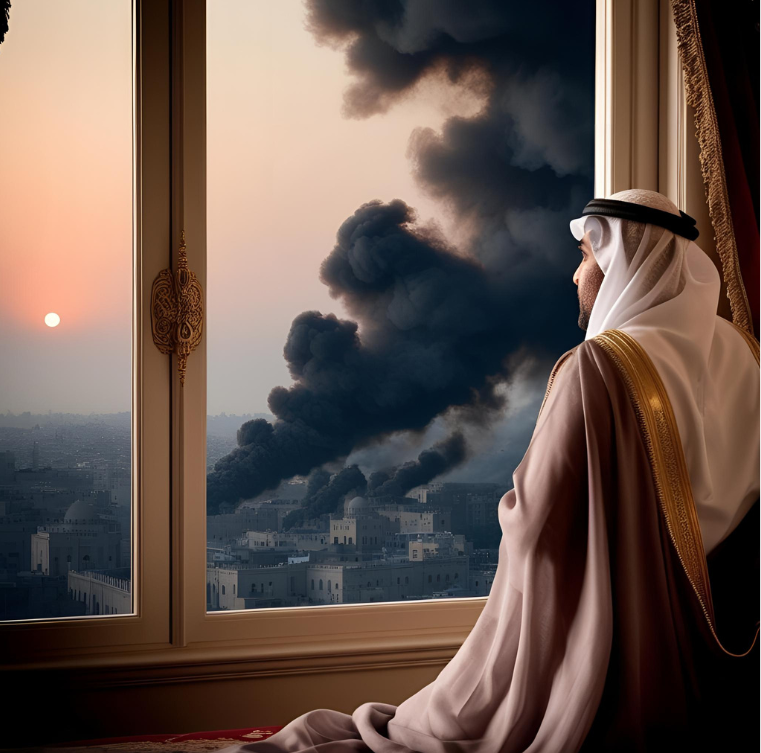From Salahuddin to Today: Why Unity is Missing in the Muslim World
بسم الله الرحمن الرحيم
In the Name of Allah, the Most Gracious the Most Merciful
Throughout its history, the Islamic world has experienced constant conflict. Across its various civilisations and empires, recurring patterns of victories and calamities offer valuable lessons.
When reflecting on the past, Muslims often view military victories as standalone moments rather than part of a cause-and-effect sequence, overlooking the broader context. While we proudly recall Salahuddin’s liberation of Palestine, we often overlook the preceding decades of fractured Seljuk power which led to the loss of Jerusalem.
Prior to the First Crusade, divided Muslim warlords were preoccupied with backstabbing, conquering, and political infighting. Their pervasive distrust, coupled with their refusal to protect one another from invading enemies, led to the fall of Antioch, Tripoli, Edessa, and ultimately Jerusalem to the Crusaders. The massacre of Muslims in Jerusalem in 1099 resulted in the slaughter of thousands.
The legacy of Salahuddin waned under his less capable descendants, who feuded over their generational dynasty, leaving Muslim territories vulnerable to rapidly emerging enemies. This period of fragmentation created a power vacuum that eventually led to the rise of the Mamluks, who defeated the formidable Mongol army in the battle of Ain Jalut.
Learning from the Lost Caliphates
We mourn the decline of the global caliphate but often forget how it splintered into fragments. The Umayyads gave way to the Abbasids, which was rivalled by the empires of Al-Andalus and the Fatimids. Sunnis and Shias struggled, scholars engaged in acrimonious philosophical battles, and power-hungry warlords established personal fiefdoms.
We lost our centres of power in the most violent way. In 1258, Baghdad fell under siege by the Mongols. The once rich, vibrant city became consumed by ashes and smoke. Blood washed the cobblestoned streets, spilling from the corpses of silenced scholars whose tongues once uttered philosophy, literature, and poetry. Books were poured into the river, darkening its silver waters with black ink — centuries of history erased by a moment of Mongol fury. The last Abbasid caliph, Al-Musta’sim, watched from his palace in bejewelled robes, reduced to a hollow figurehead.
End of an era: The start of division
The departure of Abdülmecid II, the last Ottoman Caliph, felt like a global wound that never truly healed. His ship fading into the Istanbul skyline served as a stark symbol of the global caliphate’s demise. The once vibrant heartbeat that connected the Muslim ummah flatlined. Intercountry tensions simmered, exacerbated by nationalist uprisings and the arbitrary borders drawn by imperialist European powers.
Today, the world remains fragmented. Muslim leaders, whose duty it is to protect their subjects, instead pursue political ambitions and the accumulation of wealth. They cater to a new international order whose bombs rip through Palestinian olive groves, levelling buildings in neighbouring Syria. Its genocidal fury rattles Lebanon, while across the sea, Libyan deserts echo with explosions. Further south, civilians’ blood stains the shores of Somalia and Yemen, while eastward, carnage shakes the mountains of Afghanistan. Skeletons pile high in the streets of Iraq, its horrors visible from the distant streets of Sudan.
Meanwhile, in bustling markets near Xixiang, the Uyghurs bang on the cells of their concentration camps, while displaced Rohingyas roam lonely forests near Bangladesh’s borders.
The downtrodden, forgotten, and oppressed in the Muslim world cry out, but its leaders are no longer helpless at the sight of ruthless oppressors. While the Muslims cry out for help, their leaders sit in golden thrones smiling warmly at the tyrants who killed them.
Learning from the Past
Understanding Islamic history reveals that the past offers valuable lessons. For every innocent life snatched and every city levelled, history has often produced great heroes. Figures like Salahuddin were not born in isolation but were shaped by the actions of heroes long before his time, who laid the foundations for those who would follow. The pen of Al-Ghazali inspired Muslim thinkers and the madrasas built by Nizam al-Mulk trained future learners and scholars.
These schools brought forth Nur al-Din and his student Salahuddin, whose name eclipses that of his teacher. Warriors like Saif ad-Din Qutuz and Baybars resisted the Mongol armies, inspired by heroes who had faced even greater armies before. Within divisions, massacres, and conquests lie pockets of opportunity, producing people who stand against oppression.
The best hero is born from an age of calamity. Some carry swords; others fight with their pen, the placards they hold, or the words they refuse to bury.
To heal the Islamic world, we must learn from history’s lessons and refuse to repeat past mistakes. Our focus should be on liberating the living while diligently learning from the profound sacrifices of the heroes before us.
___________________________________
Jazakallah khair for reading. Please benefit the ummah by sharing this knowledge and downloading a transcript below. Feel free to use it for your own research or personal study.
Biblography
Ahmed, N The Battle of Ayn Jalut. History of Islam. [online] Available at: historyofislam.com/contents/the-post-mongol-period/the-battle-of-ayn-jalut/ [Accessed 30 August 2025].
Cartwright, M, World History Encyclopedia, 2018. Crusader States, 2018. [online] Available at: https://www.worldhistory.org/Crusader_States/[Accessed 30 August 2025].
Inanc, Y.S., 2022. Abdulmecid II: Artist, musician and the last caliph of Islam. Middle East Eye. [online] Available at: https://www.middleeasteye.net/discover/turkey-ottoman-abdulmecid-ii-last-caliph-islam-artist-musician [Accessed 30 August 2025].
Zakiuddin, U.K., 2023. The Siege of Baghdad. Islam21c. [online] Available at: https://www.islam21c.com/history/baghdad-seige/ [Accessed 30 August 2025].



